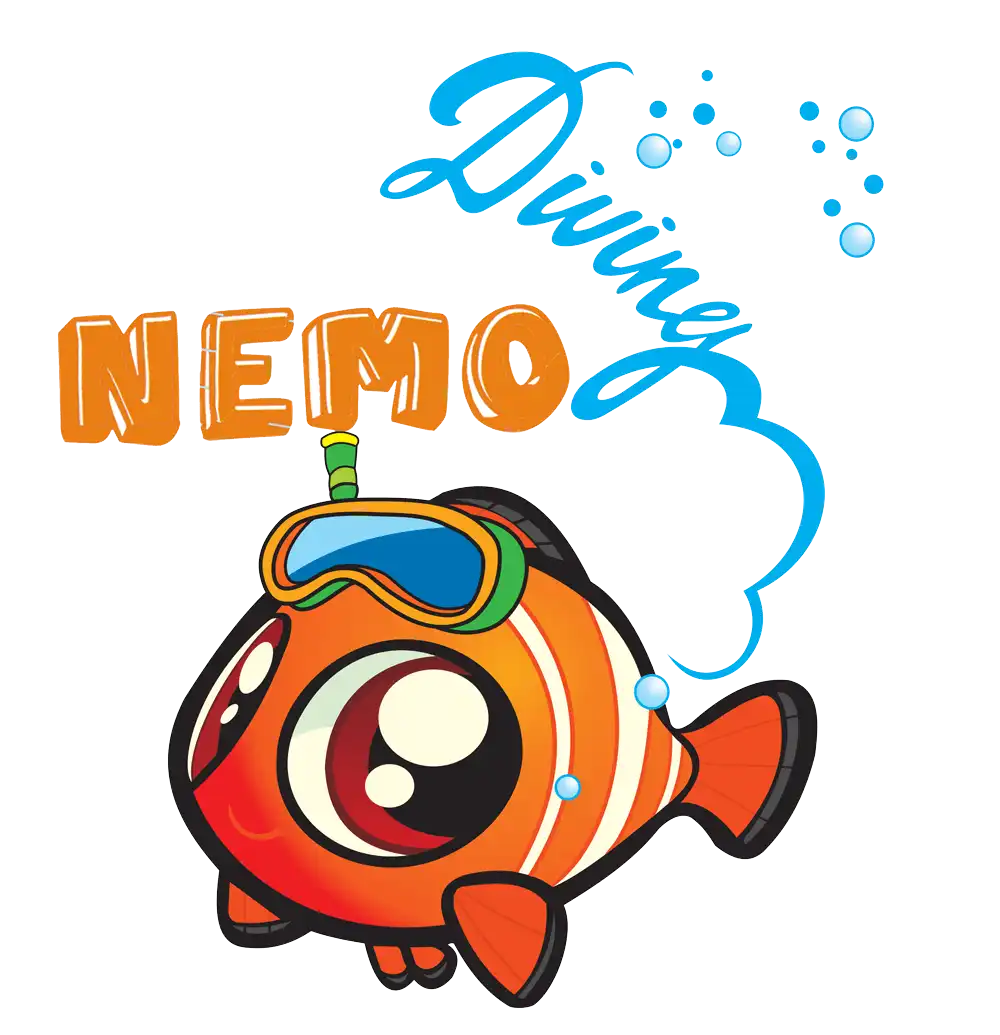
Last September 27, 2018, we came across a poor sea turtle, entangled in fishing lines while diving at Dibba Rock, Fujairah and we saw the anguish in its eyes as it glided near us. We knew right there and then that we had to come to its aid, so we immediately sprung into action!
Fishing lines were entangled around one of its flippers making it difficult for the sea turtle to swim normally. Upon inspection, we saw that the cord was deeply embedded in its flipper which was already affecting its blood circulation. The poor creature was obviously struggling to swim and we could only imagine the pain that it was in. We don’t know how long the sea turtle has been tormented with that excess baggage but it certainly didn’t deserve to suffer like that.
It took us several minutes to cut and loosen the fishing lines to free the sea turtle from the foreign object that ensnared it. There were already signs of swelling where the line had dug into the flipper and we’re glad that we were there at the right time and place to help the poor creature. The cord would have probably buried itself deeper causing lacerations if it was left alone for much longer.
We made sure that we got every inch of that cord before letting the marine animal go and when we finally did, we felt incredibly happy watching it swim without having to drag that awful angler’s line wrapped severely on its flipper. We swam with it for a while to observe if it could manage on its own and we were happy to see the creature swim with strength and vitality unlike when we first encountered it. The creature didn’t mind us tagging along and we knew deep inside that it was grateful for its renewed sense of freedom.
We brought back the fishing line that we removed from the creature back with us to dispose of it properly and make sure that it never finds its way back into the ocean.
Every year, more and more garbage, particularly plastic end up in our oceans and endanger the lives of marine creatures including the beloved sea turtles. Based on the International Union for Conservation of Nature (IUCN), six of the world’s seven species of sea turtles are currently listed in its Red List Website as vulnerable, endangered, or critically endangered.
The biggest threat to them and many other species around the world is incidental capture in fishing gear, also referred to as bycatch. Marine creature deaths by incidental capture or entanglement are attributed to longlines, drift nets, trawls, gill nets, pots, and traps. Other ocean debris like plastic bags, balloons, and other plastic items also claim the lives of sea turtles that confuse it as food such as jellyfish. Ingesting plastic by mistake can lead to blockages within the digestive system and death of the underwater dweller.
There are seven species of sea turtles that roam our oceans namely the Green, Kemp’s Ridley, Hawksbill, Leatherback, Loggerhead, Olive Ridley, and the Flatback. These amazing marine creatures come from a long line of ancient ancestors that have survived the test of time; however human activities are threatening their ability to survive. Habitat destruction, poaching, global warming, pollution, and accidental entanglement are responsible for the dwindling population of these beautiful animals but it’s not too late to do something about it. You can still protect them by making a positive difference in your area through the following easy steps:
These are just a handful of ideas but there are plenty of other ways to help the growing problems in our oceans that threaten marine life. It doesn’t matter how small your contribution is; as long as we all do something, we can help make a big difference.
Experiences
Find the perfect escape
© 2024 NEMO DIVING CENTER
Scuba diving is an exciting and adventurous water sport that offers a chance to explore the beauty of the underwater world and its amazing marine life. The UAE, particularly Dubai, is one of the most popular destinations for scuba diving, attracting divers from all over the world. With its crystal clear waters and diverse marine life, scuba diving in Dubai offers a unique and unforgettable experience.
The cost of scuba diving in Dubai varies depending on the dive center you choose and the type of dive you opt for. On average, a single dive can cost anywhere from AED 250 to AED 550, with the average price for a single dive being around AED 350. This price usually includes all the necessary equipment, such as the dive tank, regulator, and wetsuit, as well as the services of a professional dive guide. At Nemo Diving Center, We offer a wide range of diving packages to suit every budget and experience level.
Diving in Dubai is an incredible experience, and the UAE is home to many dive sites teeming with amazing marine life including colorful soft and hard corals, sea turtles, stingrays, manta rays, moray eels, cuttlefish, octopus, nudibranchs, seahorses, and a plethora of fish species. It is also noted for its incredible dive wrecks that have become rich artificial reefs. These dive sites offer a unique and exciting diving experience, providing a chance to explore sunken ships and other structures that have become havens for marine life.
Come and explore the unique underwater world of Palm Jumeriah in Dubai and incredible dive sites in Fujairah such as Dibba Rock, Sharm Rock, Martini Rock, Snoopy Island, and more. At Nemo Diving Center, we offer dive trips to these amazing dive sites, allowing divers to discover the incredible marine life that has made the wreck its home. We also offer a wide range of other dive sites to choose from, including shallow coral reefs, deep wrecks, and drift dives, providing something for every level of diver.
In conclusion, scuba diving in Dubai offers an unforgettable experience for all levels of diver. With its clear waters, diverse marine life, and incredible dive sites, Dubai is a must-visit destination for any scuba diver. Whether you’re a beginner or an experienced diver, our team at Nemo Diving Center will ensure that you have an amazing time exploring the beauty of the underwater world.
Click one of our contacts below to chat on WhatsApp
Social Chat is free, download and try it now here!
